By Ulrich A. Straus
It will not come as a surprise to American readers that when the Japanese emperor delivered his surrender message on August 15, 1945, Allied forces led by the United States had thoroughly defeated Japan’s naval and air power in the Pacific. They may be less familiar with the fact that the bulk of Japan’s land forces were still largely intact. In three years of intense combat beginning in late 1942, Allied forces had retaken control of many islands in the Pacific, notably the Philippines and Okinawa, and had routed the Japanese defenders. At that point, however, they had not defeated key units of the Japanese Army.
When the cease-fire took effect, a depleted force of some 300,000 Japanese soldiers in Manchuria had fallen victim to the sudden attack of the Soviet Union on August 8, 1945, and many were on the run. All of the other Japanese divisions that were scattered throughout East Asia remained fully intact. These included Japanese forces in the Dutch East Indies, Malaya, Thailand, Burma and French Indochina. Although weakened by relentless American submarine and air attacks against Japanese shipping, these forces had hardly even been tested in combat.
The largest contingent of Japanese soldiers in East Asia—about 1.2 million of them—were still stationed in China when the war ended. Beginning in 1937, Japan had vainly attempted to subdue the Chinese only to discover they were strengthening nascent Chinese nationalism. The Japanese had seized China’s largest coastal cities and controlled the main communications arteries in the eastern part of the country, but huge areas of China remained outside Japanese control. Chinese Nationalist, Communist, and warlord armies sporadically fought the Japanese and occasionally each other. As late as the spring of 1945, Japanese armies staged a major offensive to seize airfields in western China that were being used by American bombers.
The war in China was a drawn out, leisurely kind of conflict, punctuated by occasional Japanese victories in the field but no final resolution. It was marked by relatively few Japanese casualties and a Nationalist foe that preferred to husband its resources rather than risk losing large numbers of men and scarce weapons in pitched combat.
The conflict often seemed senseless to the Japanese troops as their forces would advance, seize territory often without coming to grips with the enemy, and then relinquish gains in order to shorten their lines. Many of the troops were engaged in light garrison duty in urban centers, rather than combat. Their experiences were vastly different from those of soldiers and sailors engaged in sustained, bitter combat on the islands in the Western and Southwest Pacific. Some of the prisoners the Allies took in the Pacific had previously served in China. In interrogations they generally expressed surprise at how desperate the struggle was against a much tougher and better equipped foe in the Pacific, for which they were unprepared.
The Japanese soldier in China was expected to live off the land during combat operations. He was provided with a ration of rice, some vegetables, occasionally a little dried fish and some cigarettes, but beyond that was on his own. If he needed additional food or shelter, he would have a choice among paying for it with worthless currency, bartering for whatever prizes he might have “liberated,” or just taking it.
Under benign circumstances, the policy of living off the land led to Japanese troops bedding down with the peasants and relying on them for at least some of their food. If the farmers resisted, the Japanese would not hesitate to mete out severe punishment, including death. Frequently the Chinese peasants would simply flee before the Japanese arrived. Then the soldiers helped themselves to whatever stores were available, and often set fire to what remained in order to deprive guerrillas of support.
The emperor’s surrender broadcast did not come as a complete surprise to Japanese forces in the Pacific, where they had been battered by successive defeats. The news was far more unexpected for undefeated Japanese ground forces in China. Although senior officers and signals personnel were generally kept informed about military trends in other theaters, the Japanese refrained from providing their troops with much, if any, news about the recurrent defeats.
Although undefeated and not expecting defeat, Japan’s largest concentration of troops surrendered to the Chinese without incident. Having witnessed, and in some cases participated in, the routinely cruel treatment of Chinese POWs and civilians, the Japanese expected the worst. Consequently, they were totally taken aback by the uniformly benign treatment that ensued at the hands of the Chinese.
“We Should not Seek Revenge From the Enemy nor Insult the Innocent People of the Enemy Country…. If We Were to Insult Them as They did Us, One Grudge Would Simply Lead to Another and Continue Into Eternity.”
The official policy of the Kuomintang, or Chinese Nationalists, was calculated and came down from the very top. Generalissimo Chiang Kai-shek set the tone of his government’s postwar policy as soon as the war ended. In an address delivered on August 15, 1945, an hour before the emperor spoke, Chiang stated that China had a distinctive morality that “taught us not to think about the past evils of individuals, but to think of their future good works.”
Now that the Japanese militarists had been overthrown, Chiang urged the Chinese people no longer to think of the Japanese people as the enemy: “We should not seek revenge from the enemy nor insult the innocent people of the enemy country…. If we were to insult them as they did us, one grudge would simply lead to another and continue into eternity.”
This remarkable display of generosity toward the defeated foe has been cited by numerous Japanese accounts of the war’s end in China as affecting them deeply and was called to mind with intense feelings of thanksgiving in my interviews of former Japanese POWs. The Japanese tended to attribute Chiang’s remarkably restrained attitude to his belief in Confucian precepts akin to turning the other cheek. In turn, Chiang’s words had caused them to “reflect” on their own past mistreatment of the Chinese. In autobiographies and letters to me, repatriates from the China front expressed apparently genuine feelings of sorrow about their personal misdeeds in China.
Chiang’s statement and his unexpected goodwill toward Japan clearly facilitated the peaceful surrender of Japan’s army in China, but Chiang had other matters in mind as well.
Although President Franklin D. Roosevelt had attempted to sell the Americans on the idea that China was a powerful ally, Chiang was aware that in August 1945 Japan’s undefeated army remained by far the most potent force in China. Some of the American military commanders in China, who had a poor impression of Nationalist China’s military capabilities, shared the view that for the time being the Japanese were best situated to maintain order in some parts of the country.
Most of all, Chiang realized that a breakdown of order would benefit the Communists who demonstrated unexpected strength once the war ended. He also wanted to retain the goodwill of the Japanese to ensure that their weapons would not fall into the hands of his internal enemies. Beyond that, Chiang may well have believed already that Japanese soldiers might be induced to volunteer, or perhaps be coerced, to join the impending struggle against the Communists.
Chiang may have had other, more personal reasons to look kindly on the Japanese military who no longer posed a threat to his own position. He had lived in Japan for eight years and had received much of his military training there, preparing for the Nationalist Revolution. At one point he had to flee Shanghai and sought refuge in Japan. He knew some of Japan’s top military leaders personally and retained discreet contacts with a few Japanese even during the war. And he was not the only Nationalist military leader with such ties to Japan. According to a Chinese source, when the Nationalist chief of staff, General Ho Ying-ch’in, called on the Japanese commander in Nanking, General Okamura Yasuji, to take his surrender, his first word was “sensei” (teacher) because he was reestablishing contact with his former instructor at the Japanese military academy.
The Japanese commanders had at least equally compelling reasons to cooperate with the Nationalists. Despite Chiang’s assurances, many Japanese feared Chinese retribution, often with good reason. Aside from the prospect of the Chinese fingering substantial numbers of war criminal suspects, the Japanese military wanted to prevent, at all costs, having their troops fall into Communist hands and turned against them. They also faced the daunting prospect of having to cross considerable distances just to reach a port from which their troops could be repatriated. To accomplish this, they would have to rely on a variety of Chinese authorities. Within a period of two years, this repatriation was largely accomplished, with remarkably little friction considering the immediately preceding enmity.
In the months after Japan’s surrender, small contingents of American forces landed in China. To strengthen Chiang Kai-shek politically, they were intent on having Japanese forces surrender to the Nationalists and not to the Americans, as the Japanese no doubt would have preferred. The Americans, moreover, shared the Nationalist objective that Japanese weapons fall into Nationalist, not Communist, hands, and that all Japanese come under Nationalist, not Communist, control.
This policy was carried out without a hitch, although the way the Nationalists dealt with their erstwhile enemies was far different from the treatment accorded Japanese POWs by the United States and its Western allies. As reflected in autobiographies by Japanese veterans of the war in China, and supplemented by several interviews I conducted with such veterans a few years ago, Nationalists treated the Japanese with kid gloves in a way calculated to preserve their honor and “face.”
Following are the stories that illustrate the variety of experiences encountered by Japanese soldiers in China once hostilities came to an end.
Yasuzo Hattori recalled his remarkable postwar career as a Chinese Nationalist officer in a privately published memoir on which he elaborated in an interview. Inducted into the Japanese Army in December 1944, he was assigned almost immediately to the city of Baotou on the Yellow River in Inner Mongolia, about 350 miles west of Beijing. As a radio operator he enjoyed good, carefree duty, even though he was stationed at the very frontier of Japanese control. There were no roll calls and no participation in raiding parties. His only responsibility was to listen to foreign broadcasts. The first time his unit came under attack was on August 13, 1945, but by then the war was almost over. Until then Hattori had not even carried a gun.
According to Hattori, the “enemy” he had faced was not actually the Chinese Nationalist Army; it was one of the “thieving” warlords who controlled the area around Baotou. This particular warlord was a graduate of a Japanese military school who had made cooperative “arrangements” with both the Japanese and the Nationalists. However, it was the Nationalists who collected the Japanese weapons shortly after the war’s end. Life actually improved for the nominal prisoners of war. Their warehouses held food for two years. Controls over entry and exit from their POW camp were lax, enabling them to get into town almost at will. Best of all, the Japanese were never given the hated appellation of “prisoner of war.”
Hattori Felt Overwhelmed by the Unexpected Chinese Goodwill Toward Him, a Feeling He was Anxious to Reciprocate.
After a month or two, their “enemy” asked them to come and pick up some of their arms and ammunition again. It appears that in this remote corner of China the Nationalist/warlord conflict with the Communists was not going well, even as early as the fall of 1945. Some of the Japanese soldiers, sent out to guard the railway tracks, were seized by the Communists, indoctrinated, and returned to their own units to carry on an underground propaganda campaign. Another group of Japanese soldiers “disappeared” and quietly set up shop near a Japanese warehouse from which it filched clothing that was sold to Chinese merchants. They also sold sacks of flour. Others sold dynamite from military stocks to help the local coal mines function again. A combination of ingrained fear of Japanese power and an understanding that they might well require the Japanese for their own defense from the Communists was sufficient to inhibit the Chinese from simply confiscating the needed materials.
Japanese entrepreneurs had earlier installed virtually all of what was then considered Baotou’s modern machinery. It gradually came to a standstill after the Japanese civilians who had operated the small factories were repatriated. According to Hattori, the local Chinese had neither the technical nor the managerial skills to take over the coal mines, match, and kerosene factories, among others. In this situation, the Chinese authorities asked about 500 Japanese soldiers to remain behind to revive the economy. They were promised wages in accordance with their military rank, plus three meals a day.

Hattori was one of those who decided to take up the offer. Although not in touch with his family, he figured they could do without him for a while; besides, job prospects at home were poor and he had a “youthful enthusiasm” to contribute to China’s reconstruction. From a lowly enlisted man in the Japanese Army, the Chinese Nationalists promoted him to first lieutenant and assigned him the name Pai Syu-gen with responsibility for getting the match factory going again. Hattori felt overwhelmed by the unexpected Chinese goodwill toward him, a feeling he was anxious to reciprocate. Once again he could feel proud, especially because the Chinese delicately refrained from ever mentioning Japan’s defeat.
When American officers came to inspect Hattori’s unit, they were none the wiser. All Japanese serving the Nationalists were under orders to keep their mouths shut so long as the Americans were in the area. The Americans soon departed.
With Communist pressure increasing, Hattori’s group of volunteers in the Chinese cause decided they should take the opportunity to be repatriated to Japan when that chance occurred. But when they arrived at the railway station, the last train out before the Communists cut the rail line to Beijing was disappearing in the distance. It occurred to Hattori that he and others had possibly fallen victim to a conspiracy between senior Japanese Army commanders and the Chinese. In any event, all hope for early repatriation had fled.
Under the direction of a Japanese colonel from the general staff, Baotou’s defense was organized around a main force of the 500 Japanese. They were required to train 3,000 Chinese draftees. The Japanese rapidly learned sufficient Chinese to train their men without using interpreters. Hattori commanded about 100 Chinese whom he trained in basic infantry tactics. Every Japanese officer had a Nationalist as deputy. The Japanese were billeted with Chinese families. They had dinner at Chinese restaurants, spending their income that was rapidly diminishing through inflation.
Under these circumstances, it is hardly surprising that Hattori “did not feel that Japan had lost [the war].” Clearly, he was no longer a prisoner of war. He and other Japanese in similar circumstances were free to come and go at will. As a freshly minted officer he admitted to a bit of swagger. In his reincarnation he came into plenty of contact with Chinese girls who had matrimonial designs on new Nationalist officers. According to Hattori, they trusted men who took their duties seriously, “even if they already have wives at home.” A mass miai (a formal meeting between men and women with a view to arranging an engagement) took place, though in Hattori’s case it eventually came to naught, with saved “face” all around.
The good times began to deteriorate when Communist military pressure increased during 1947. This forced the Japanese-led units to withdraw to prepared positions. Since their rail links to the coast had been cut, they had no choice but to stay and hope for the best. Besides, the Japanese felt they needed to repay the Nationalists’ goodwill. Moreover, as Hattori pointed out, they had been “brainwashed” by the stern Japanese militarist dictum that did not permit retreat. For three months the Japanese-led units were pounded by the Communists.
Hattori noted that there were Japanese fighting with the Communists as well. He surmised this from the loudspeaker appeals to defect they regularly heard from the other side. Moreover, he saw enemy troops sporting hachimaki (headbands) around their heads. The Japanese tied theirs in the back while the Chinese tied theirs in front. By unspoken agreement, the Japanese in the employ of the two Chinese factions never fired on one another.
Nationalist planes from Beijing resupplied the defenders of Baotou with ammunition and bombed enemy positions, which eventually allowed the mixed Nationalist/Japanese force to go over to an attack. According to Hattori, however, when the situation got tense, some of their Chinese Nationalist troops had simply fled. Earlier, the more peaceful-minded Chinese simply shot their rifles in the air in the direction of the enemy to simulate engagement in combat. When the Communists abruptly gave up the siege, 50 Japanese were dead and 125 were wounded. In the fall of 1948, the railway to Beijing was reopened, and Hattori was repatriated to Japan without further adventures.
Thinking it over many years later, Hattori pondered why so many Japanese should have sacrificed so much on behalf of another country. He concluded that the Japanese willingness to die for another’s cause must have had something to do with their indoctrination. However, he insisted, those who served the Nationalist cause were not mere mercenaries. The citizens of Baotou had repaid them for their sacrifices during the siege by subsequently providing their meals free of charge.
In June 1992, Hattori returned to Inner Mongolia, taking part in celebrations marking 20 years of Japanese-Chinese friendship. Much had changed in Baotou, but he was pleased to find his old Japanese Army unit’s coat of arms still affixed to the gate of the city. He looked up some of his Chinese friends from that bygone era and found them all still as friendly as ever.
In Central China, the end of the war came to Army Captain Harutaka Sasaki on August 18, 1945, when his regimental commander ordered the burning of all their flags and admonished them not to commit suicide. He told them, “Chinese revenge may be harsh, but we will first have to endure it.” A few days later the unit was ordered to leave Nanchang for Jiuchiang and then follow the Yangtze River north to Nanjing, a distance of 285 miles. They were still in their camouflage uniforms and scarcely believed the war was over.
This part of Kiangxi Province looked more desolate to Sasaki than he had remembered it from marching through the region in 1942. The Chinese, who lined the road where they marched, jeered “impudently.” En route they encountered units of the New Fourth Red Army that demanded the Japanese turn over their weapons. This was rejected, and the Japanese commander ordered even stricter measures of self-defense while avoiding any actions that might be interpreted as aggressive.
Sasaki and his comrades understandably felt they were in a “strange situation.” Here they were, marching through Chinese territory, still fully armed but technically POWs. China’s Nationalist Army Headquarters had ordered them to defend themselves against “bandits” (i.e., the Red Army).
“No Matter how Much You Struggle, Whatever Heaven Decrees Should Happen, Will Happen.”
After recrossing the Yangtze 30 miles south of Nanjing, the Japanese commander called on the local authorities to inform them about their intended line of march through their territory. They were warmly welcomed by a Japanese-speaking governor, who confessed he had become concerned about Communist infiltration. He urged the Japanese to shoot the “rebels” without hesitation. The governor also arranged for them to meet with the chief of the provincial militia. He told them that quarters would be prepared for them and made it clear that he was looking forward to conducting joint operations with the Japanese.
The townspeople were pleasant enough, but nervously asked how long the Japanese would remain, to which they responded, “Until replaced by Nationalist forces.” This in turn brought forth the Chinese comment that they hoped it would be forever since the Nationalists were “unreliable.” In any event, the Japanese troops settled down for a while. A Chinese suggestion for joint combat operations was briefly floated, but came to naught. Orders came down from the central government for the Japanese to withdraw to an area west of Nanjing. The townspeople saw them off “without hiding their fears.” The promised Nationalist relief never appeared.
According to Sasaki, the Japanese senior officers were invited to a farewell banquet hosted by the provincial governor, who thanked them for “standing guard” for two months. In his remarks, the governor stressed that peace in East Asia depended on friendship between Japan and China. For whatever reason, 14 years of war had ensued between them, and the Western powers had utilized this unhappy situation for their own advantage. He placed primary responsibility for this state of affairs on Japanese militarism, but added that China’s internal divisions had contributed. To remember the occasion, he presented the Japanese with a picture of bamboo. Should they ever become discouraged, the Japanese could look at the bamboo and “snap back” to a more positive outlook.
All this was music to the ears of the Japanese, who felt that being treated honorably so as to retain “face” was especially appreciated at a time when they had been defeated. At the conclusion of the dinner, the Chinese commander raised his cup to toast Chinese-Japanese mutual goodwill.
When the governor’s party was over, the provincial militia’s security chief invited the Japanese for a party of his own. It seemed to them that he just could not let go. He used the occasion to ask the Japanese to leave grenades for his forces on the grounds that the Communists feared this weapon above all else. The Japanese believed that grenades were hardly sufficient to turn the tide against the Communists, but in the party atmosphere in which the request was made found it difficult to respond.
After polite discussions, the Japanese commander finally urged the Chinese to accept their fate: “No matter how much you struggle, whatever Heaven decrees should happen, will happen.” Providing the grenades, the Japanese commander explained, would only end with the Chinese commander’s death and cause his wife to grieve for him. The Japanese kept the grenades. On parting, the Japanese felt deep sorrow for the Chinese who had lost all faith in their own military and could only rely on the power of a recent enemy.
Sasaki’s unit was moved to a new area 20 miles southwest of Nanjing to spend the night. Each platoon sought shelter separately in village houses. Their owners were not especially happy about it, but “since we were heavily armed” there was nothing they could do. Rumors swept the unit; examples were that due to the lack of shipping, it might take 10 years to get all the Japanese home, and conditions were so bad in Japan that it was better to remain in China. Questions were also raised about who was going to feed and house the Japanese while they remained in China.
The order to turn over their arms to the Nationalists arrived on November 28, 1945, three and a half months after the emperor’s broadcast and almost three months after Japan’s formal surrender. It was only then that the Japanese soldiers felt the full impact of defeat. Within the Japanese military, reproaches were exchanged among senior officers about responsibility for “killing millions” and “burning all those fields.” Meanwhile, Sasaki noted that with new weapons in hand the Nationalists became more confident, even boastful about their future prospects. At the same time, they admitted that they had been fortunate in “not having to fight the Japanese.”
In fact, some Nationalist soldiers envied the Japanese POWs for being able to go home, while their own fight was just beginning. A few months later, Communist forces in Manchuria decimated the Nationalist unit that had taken their surrender. As the Japanese troops waited for transportation, a new problem of maintaining order among the troops arose. As POWs, unit solidarity broke down, and respect for superiors weakened. Troublemakers were reminded that they were still subject to military law until demobilized in Japan. If they deserted and tried to find a way home on their own, they would have to suffer any consequences. The troops were reminded that their best bet for survival was to retain their traditional solidarity, but that proved difficult to enforce.
While still awaiting repatriation, Sasaki’s unit was ordered to Nanjing to clean up the city. Sasaki and his comrades thought this was “unfair” since their division had not been involved in the Rape of Nanking. The Chinese explained theirs was the only division available; moreover, a unit such as theirs, which had not participated in the massacre, was less likely to encounter hostility among Nanjing’s citizenry.
The nearer they came to the center of Nanjing, the louder grew the verbal assaults by younger elements of the population. They gritted their teeth and were thankful that the adults refrained from taking part; it seemed bearable since at least a few Chinese showed some pity toward the POWs. Arriving at the castle work site, the POWs were stopped by 15- and 16-year-old “military guards” who demanded bribes, preferably pens or watches. In the end, they settled for cigarettes.
Following extensive discussions with the Chinese about the various projects on which the POWs were to work, agreement was reached. The Japanese unit leader thereupon addressed his subordinate officers as follows: “These are likely to be the last projects we are required to work on in China. Whatever mental attitude we bring to this work, it is a fact that we have brought about an unbelievable amount of trouble for China. From now on we must associate with them as with a trusted neighbor and repay our debt to Chiang Kai-shek. Let us go about our work in such a manner so as not to cause the Chinese either to laugh at us or to despise us, and follow the jointly agreed work plan with dedication.”
The work involved repairing the heavily damaged ancient castle, repairing and rebuilding houses that had been set afire, cleaning public toilets, and dredging sewers. Most difficult was working on the roads without proper tools. The Japanese POWs referred to it as “coolie labor.”
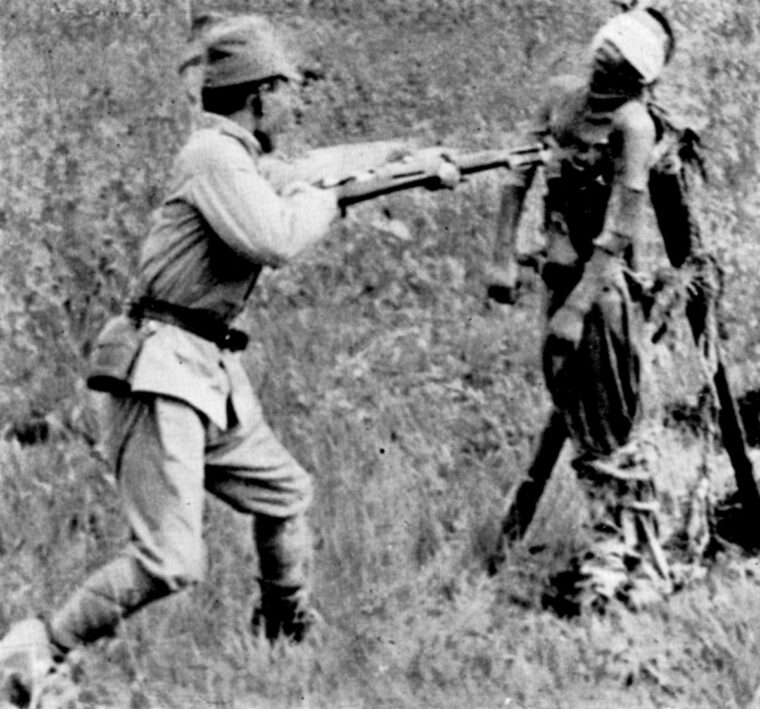
When Sasaki’s unit left Nanjing by troop train for the coast in May 1946, the petty corruption—perhaps the only real complaint voiced by Japanese POWs in China—only intensified. The train would stop in the middle of nowhere and only “gifts” to the engineer would get it going again. The distance the train would then travel was proportional to the amount of the “gift” that had been provided.
Despite Sasaki’s Boundless Gratitude, He Still Shrank From Accepting the Chinese Nationalist and Communist Number of 300,000 Victims of the Rape of Nanking
Summarizing his POW experience, Sasaki wrote that the status of a prisoner of war is “bitter” because it gives the power over life and death to foreign forces. One has a mixture of shame and a sense of fear about an uncertain future. That he emerged from the ordeal without suffering any physical harm, was not even treated as a POW for much of the time, and had maintained order over his men to the last, was, he believed, ultimately due to the magnanimity and far-sightedness of Chiang Kai-shek and other Chinese leaders. His appreciation could never approach the thankfulness that he feels.
Sasaki wrote, “I have the profound feeling that we lost owing to the Chinese peoples’ ability to look into the distant future and their boundless humanity. We Japanese must learn from them.” Ironically, despite Sasaki’s boundless gratitude, he still shrank from accepting the Chinese Nationalist and Communist number of 300,000 victims of the Rape of Nanking. He argued that since he had not been ill-treated while assisting in the reconstruction of Nanjing, it was “unlikely” the large numbers could be correct.
Masanobu Kato had yet another story to tell about the days after Japan’s surrender. He was stationed in the city of Xinyang, north of Wuhan in Henan Province. Thinking that Nationalist and American forces would be arriving soon, their first action was to burn all the unit’s administrative documents, personal diaries, notebooks, and other possible evidentiary material that might one day be used against them. They were eventually packed into a train heading north, together with plenty of “thieving” Nationalist guards and civilians who rode on top of and between the cars. At one point the train derailed, with many guards and civilians killed and injured. The Japanese speculated that it might have been the work of local Chinese, who wanted to get revenge on Japanese troops whom they knew to be on board.
All members of Kato’s unit formally became POWs on arrival at Zhangzhou in central Henan Province. The Chinese treated them politely, possibly because the Chinese commanding officer was a classmate of the commander of one of the Japanese units when both were students at a Japanese military academy. Nevertheless, Kato attributed their good treatment to basic Chinese “humanism.” Even he, a lowly private first class, felt it. No heavy labor was required. Once in a while he might have been a bit hungry, but virtually every day was carefree, spent collecting firewood or raking grass. Some POWs even got paid to repair houses. Kato wrote that he “shuddered at the thought of how Japanese had treated Chinese [during the war].”
Takeo Hirano was a medical orderly who served in China from 1940 to 1946. Initially he was stationed in Anqing in central China, but was later transferred to a city near Hong Kong. There he worked in a cholera prevention program, together with a number of Chinese medical students from Hong Kong University. In early 1944, he was transferred to the military hospital in Nanjing; he claimed that he never knew anything about the “Rape” that had taken place seven years before.
The war’s end saw him at the front lines in central China, taking care of Japanese patients. After the war the Japanese army hospital also took in Chinese patients. Public health was a major concern throughout this period as malaria and diphtheria were rampant. Confined to their stockade, the Japanese POWs ensured a steady supply of food for themselves by trading their stock of medications for food that the farmers were allowed to bring in. Hirano indicated that he feared the Chinese might seek revenge for Japanese wartime atrocities. One of the precautionary measures taken by the Japanese was to disguise their nurses in male uniforms. The revenge never took place.
Hiroshi Tanio was deferred several times from the draft for health reasons, went to Beijing in 1938 to learn Chinese, and was employed by a Japanese business there. After Pearl Harbor, he had grave doubts about the wisdom of taking on a huge country such as the United States, but was resigned eventually to entering the military himself. He was called to the colors in February 1944. In the summer of 1945, he took part in engagements against the Nationalists in Hubei Province in central China. In the course of these campaigns, he wrote in his autobiography, he had “taken lives and property from the Chinese people.”
His company received no news about the surrender on August 15, 1945, but several days later a Chinese peasant brought a letter to his company commander from the opposing Nationalist brigade commander. The letter informed him that Japan had lost the war and asked him to designate the time and place where he would surrender. The Japanese commander replied, in Chinese drafted by Tanio, that he intended to continue fighting since he had received no official information that Japan had surrendered. A few days later, Tanio’s company was ordered by higher headquarters to withdraw from its position and by September 18 to assemble in Luohe City in Henan Province. If they encountered the enemy, they were not to initiate combat, but to defend themselves, if necessary.
Arriving at the assembly point, they received word from the Nationalists that their unit was not under suspicion of harboring potential war criminals. Accordingly, they would be allowed to keep their unit with rank structure intact. Then began their half-year as POWs. Some of the citizens of Luohe, by Nationalist order, were required to vacate their homes, which the POWs then occupied. The former residents meanwhile found shelter with others, at some inconvenience to themselves.
Tanio recalled that during the war the Chinese had usually fled before the advancing Japanese Army, which simply occupied their houses, helped themselves to any available foodstuffs and whatever else was at hand. If the Chinese displayed any hostility, they would simply be killed. The hate and bitterness this must have engendered now pained him greatly. In my interview it was clear to me that his contrition was entirely genuine.
The Nationalists did not even refer to the Japanese as POWs. Instead, their liaison office was called the “Japanese Forces Government Management Office.” The Japanese were not under surveillance, not required to perform heavy labor, and had roll call only once a month. They never lacked for food or other material things. They were permitted to operate under the rules and regulations they had employed during the war. Although they were required to turn in most of their weapons, the POWs retained a limited number of rifles with which to stand guard, and they were asked to remain vigilant to block the possible passage of Communist forces. It seemed to Tanio that his unit’s responsibilities “were to guard the Nationalists against possible Communist activities.”
To while away the time, daily Chinese language classes were instituted at a local school for all the men. Japanese officers believed that such skills might come in handy for scrounging for food and other necessities in case the men were required to walk to a port of embarkation. At the time of Japan’s surrender, rumors abounded that the Chinese Nationalists would force the Japanese POWs to walk home—through northern China and Korea—at a probable high cost in lives. If there was ever any serious intent to carry out such a plan, the increased power of Communist forces in North China ensured it would not take place.
In due course, the Nationalists asked the Japanese to instruct them in the operation of the heavy and light machine guns that they had earlier turned over. The morning after the instruction started, Tanio was surprised when one of the Chinese guards appeared with a wash basin filled with hot water for the prisoners. At the time, it was unthinkable that a private in the Japanese Army would be entitled to such a luxury.
While Japanese had Always Been Taught to Look Down on the Chinese, Tanio Thought He Would Henceforth Look on Them as His “Moral Masters.”
After breakfast, tea, and a smoke, the Japanese were brought to a parade ground where 40 Nationalist field grade officers were lined up and waiting for them. On command, they saluted the Japanese. It was, of course, unheard of for an assemblage of senior officers of the victorious army to salute their erstwhile foe, let alone some lowly privates, and the Japanese were “deeply moved” by the gesture of respect. While Japanese had always been taught to look down on the Chinese, Tanio thought he would henceforth look on them as his “moral masters.”
After completing their training in weapons use, the Chinese were not content merely to invite their teachers to a plentiful Chinese meal. They actually sent them horses on which to ride, while Chinese led the animals to the restaurant. On another occasion, the Chinese commanding officer invited a Japanese medical doctor and his interpreter (Tanio) for a meal to thank them for treating Chinese. This generosity of spirit impressed Tanio greatly, causing him to think about the immense differences in the humanity of the Chinese and Japanese.
To express appreciation for the kind treatment accorded them, the Japanese, in turn, planted trees to line Luohe’s main street before they departed for home. Rather than being required to march to the port of embarkation, the POWs were transported to Shanghai by rail, with a small guard of Chinese Nationalist troops.
The recollections of a handful of Japanese veterans of their wartime and postwar experiences in China cannot claim to provide a complete picture of what actually took place. They do indicate that experiences differed greatly and depended to some extent on whether the Japanese commanders had earlier established a personal relationship with their Chinese opposites. Even more telling was the extent to which the Nationalists in their area felt threatened by the Communist insurgents.
While most Japanese soldiers serving in China may not have known about the Nanking massacre, they did know, from personal experience, about the daily humiliations, depredations, murders, and cruelties visited on ordinary Chinese. There was no secret whatever about the Japanese government’s policy of living off the land during combat operations.
The autobiographies of Japanese veterans of China indicate that many felt considerable guilt about what had occurred, and most had feared possible Chinese retribution. For whatever reason, the Chinese Nationalists maintained a benign policy toward the defeated Japanese and displayed remarkable tact and restraint to permit the Japanese to retain their sense of face and honor. More than any other experiences, former POWs in China recalled with immense relief and thanksgiving the Chinese practice not to humiliate the defeated Japanese and to treat them with respect.
There appears to have been considerable looting of the POWs’ personal possessions by Nationalist guards, but over the years the Japanese had done far worse to both the Chinese military and civilians under their control. Moreover, there is evidence that senior Japanese commanders enriched themselves during their service in China, though it is not clear whether they were able to take their booty with them when they were repatriated.
In the light of the history of Japanese depredations in China it may appear astounding that the surrender of over a million Japanese troops in China took place over an extended period of time without incident. Japanese soldiers were often not even confined to their barracks, let alone placed in POW stockades. There were no reported instances of Chinese military forces or civilians wreaking vengeance on the Japanese. Just as Americans were surprised that the emperor’s surrender was carried out without incident on Japanese soil, Japanese were surprised and relieved by the sudden and total change in Chinese attitudes toward them when the war ended. Whether such abrupt changes in behavior toward their erstwhile bitter foe reflect an aspect of the Confucian heritage common to both China and Japan, Chinese Realpolitik, or some other factors, there is little doubt that the Chinese helped the Japanese save “face” at a particularly sensitive period of history.
Both the Nationalists and the Communists conducted trials of suspected war criminals. Some were sentenced to death and some served time in Chinese jails. A few years ago, a two-part television program showed war crimes trials conducted by the Communists, the good treatment the suspects received in prison, and recent interviews of the former war criminals in Japan. In these interviews, these now aged men confirmed that they had participated in unspeakable crimes against Chinese military prisoners and civilians and expressed their deep regret for their actions. As part of the program, two noted professors affirmed that these events really happened.
Despite some remaining open wounds in the Sino-Japanese relationship, the postwar experiences of Japanese veterans in China contributed to the continuing reconciliation between East Asia’s two large neighbors. At the same time, Chiang Kai-shek’s magnanimous treatment of the defeated Japanese may still benefit the newly democratic Taiwan and its efforts to maintain its independence.
Ulrich A. Straus lives in Northpoint, Michigan. His research on the experiences of Japanese POWs captured by the Western Allies during World War II has been published by the University of Washington.

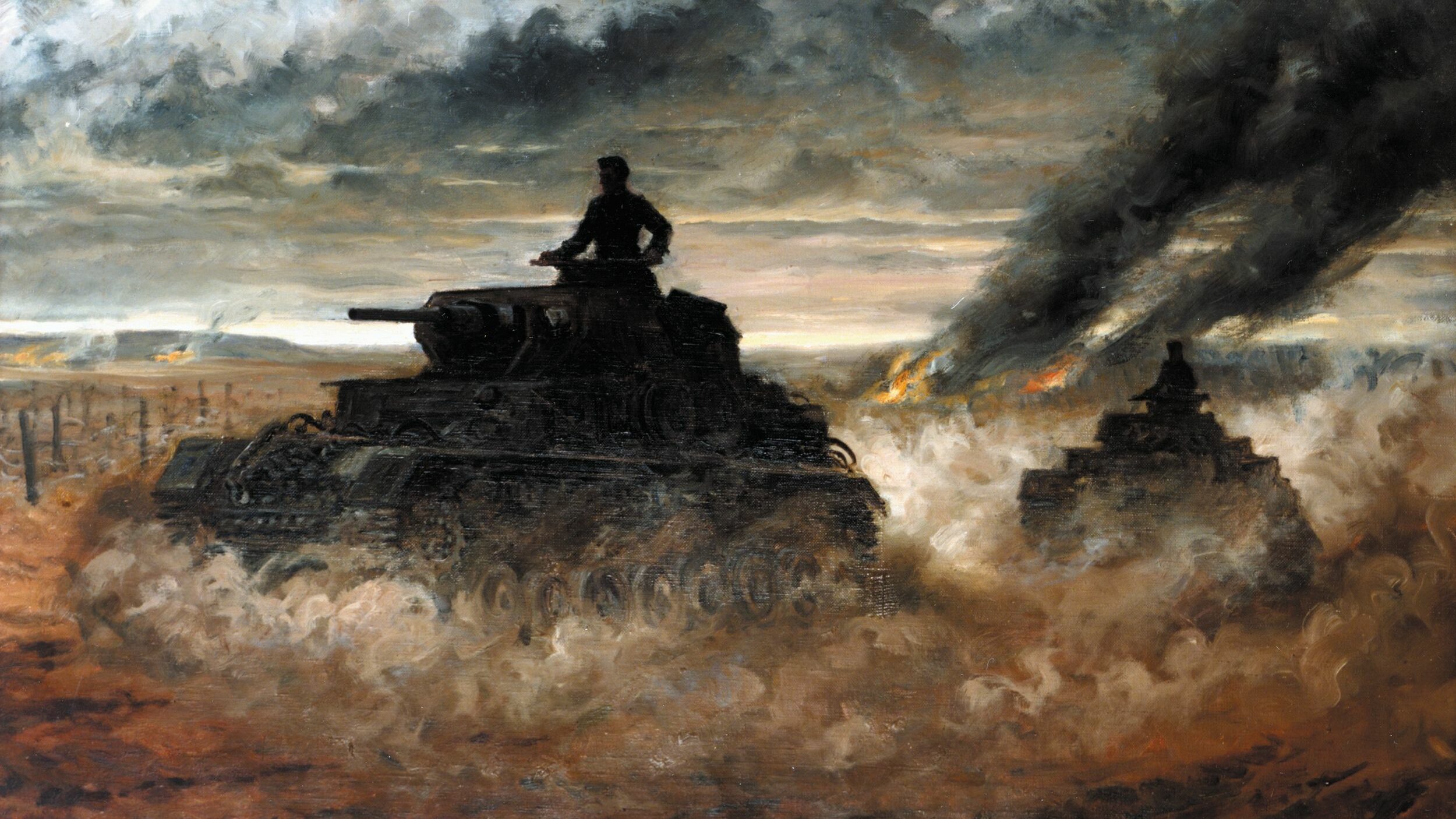
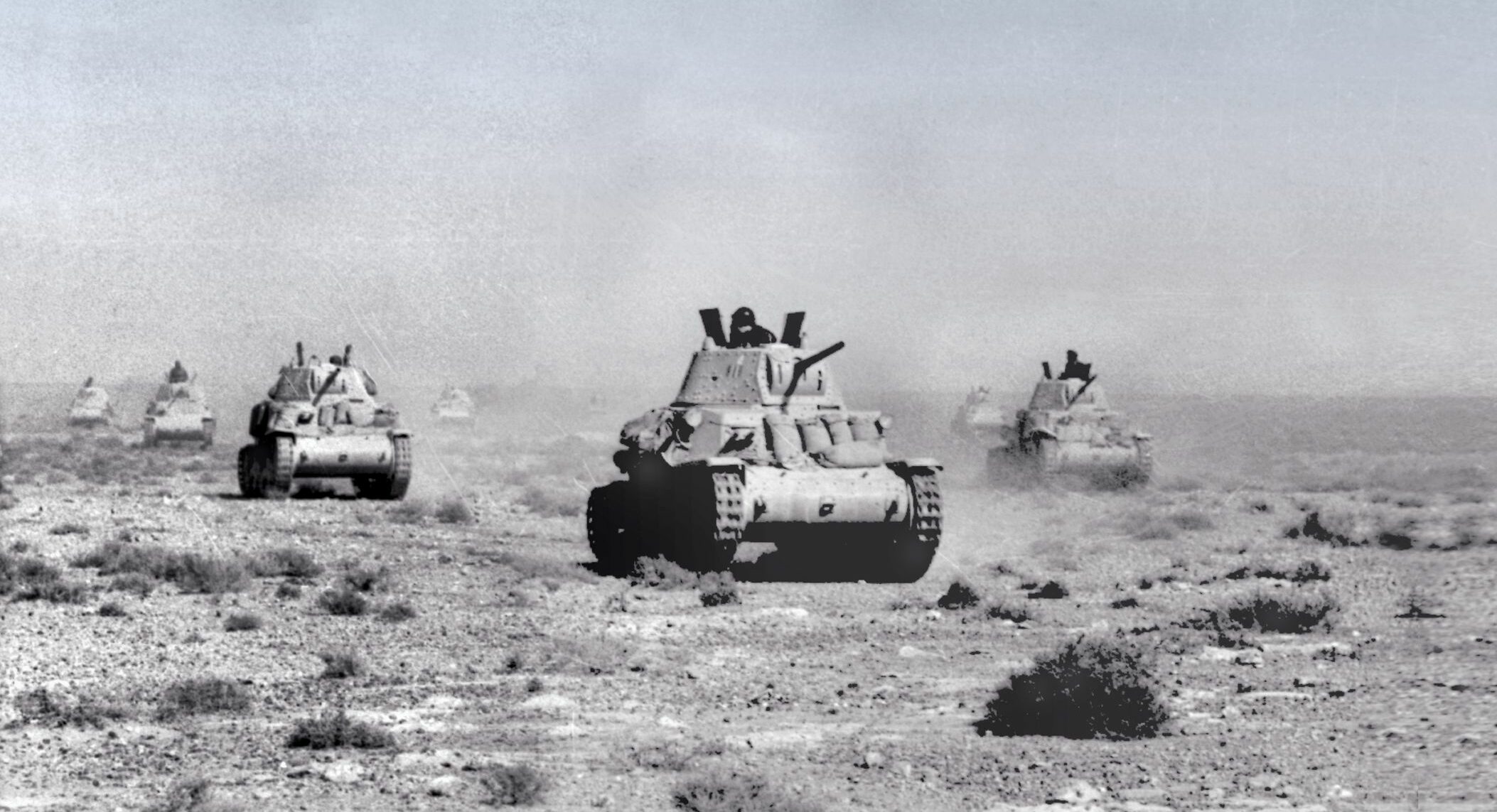
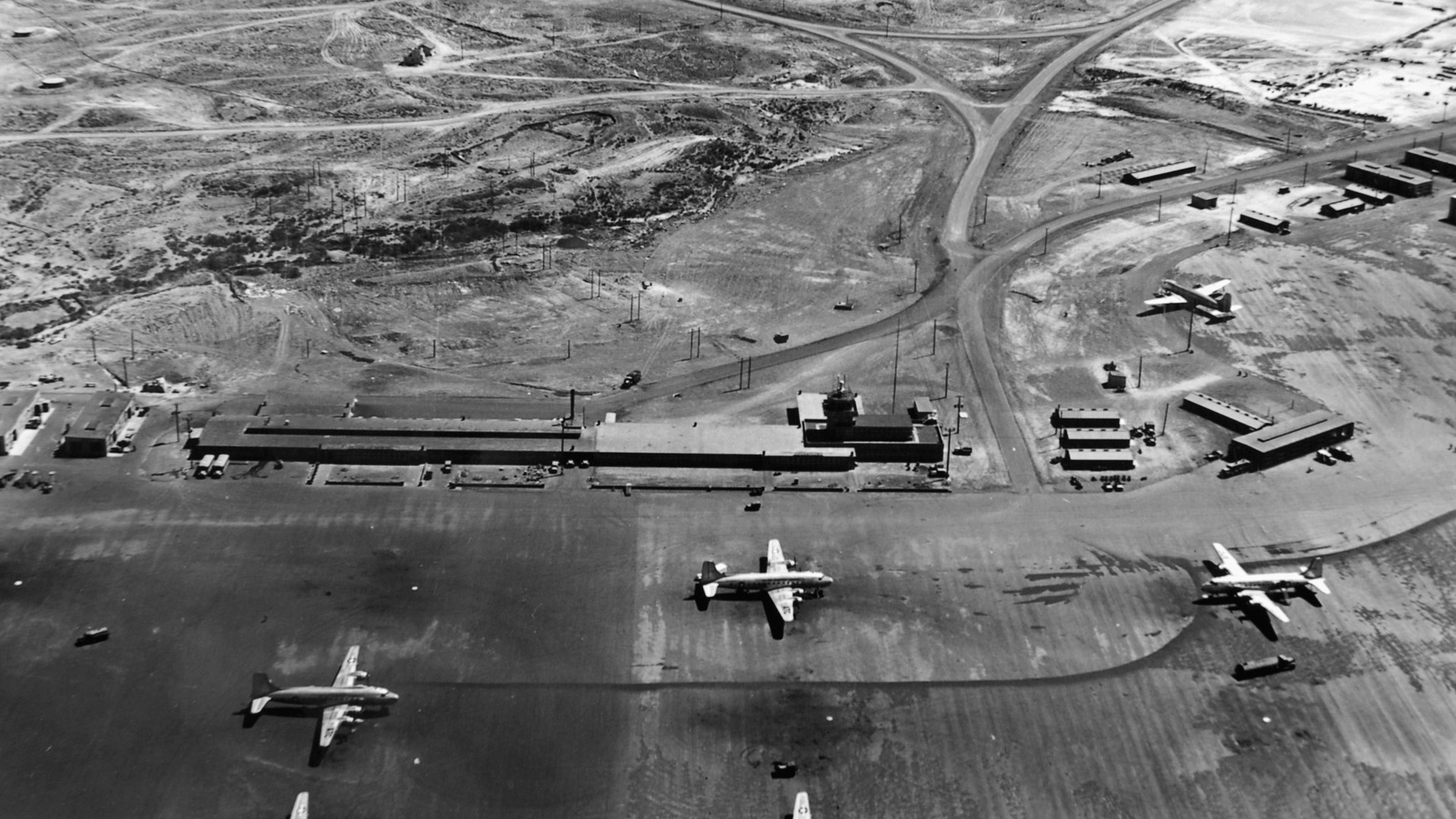
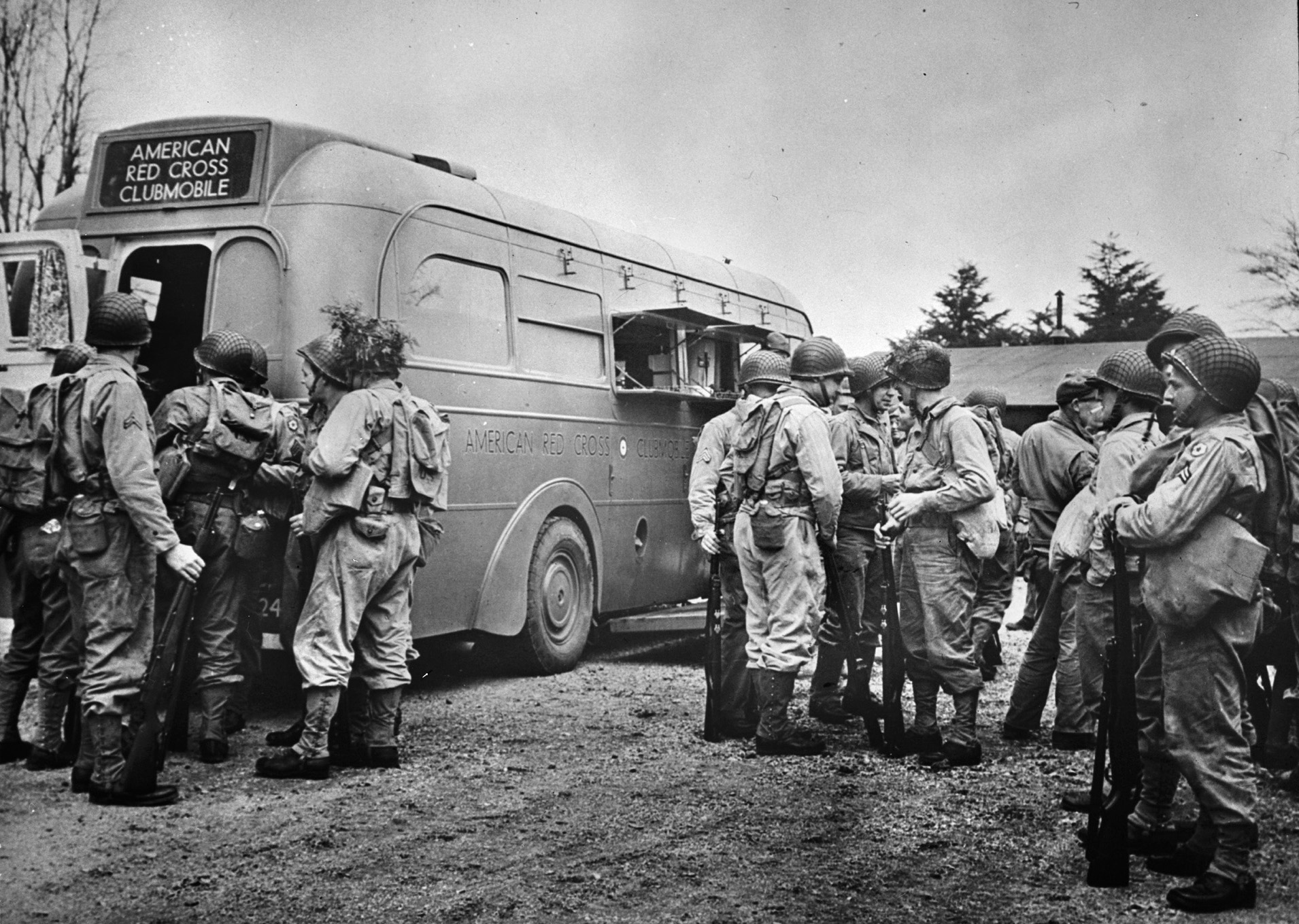
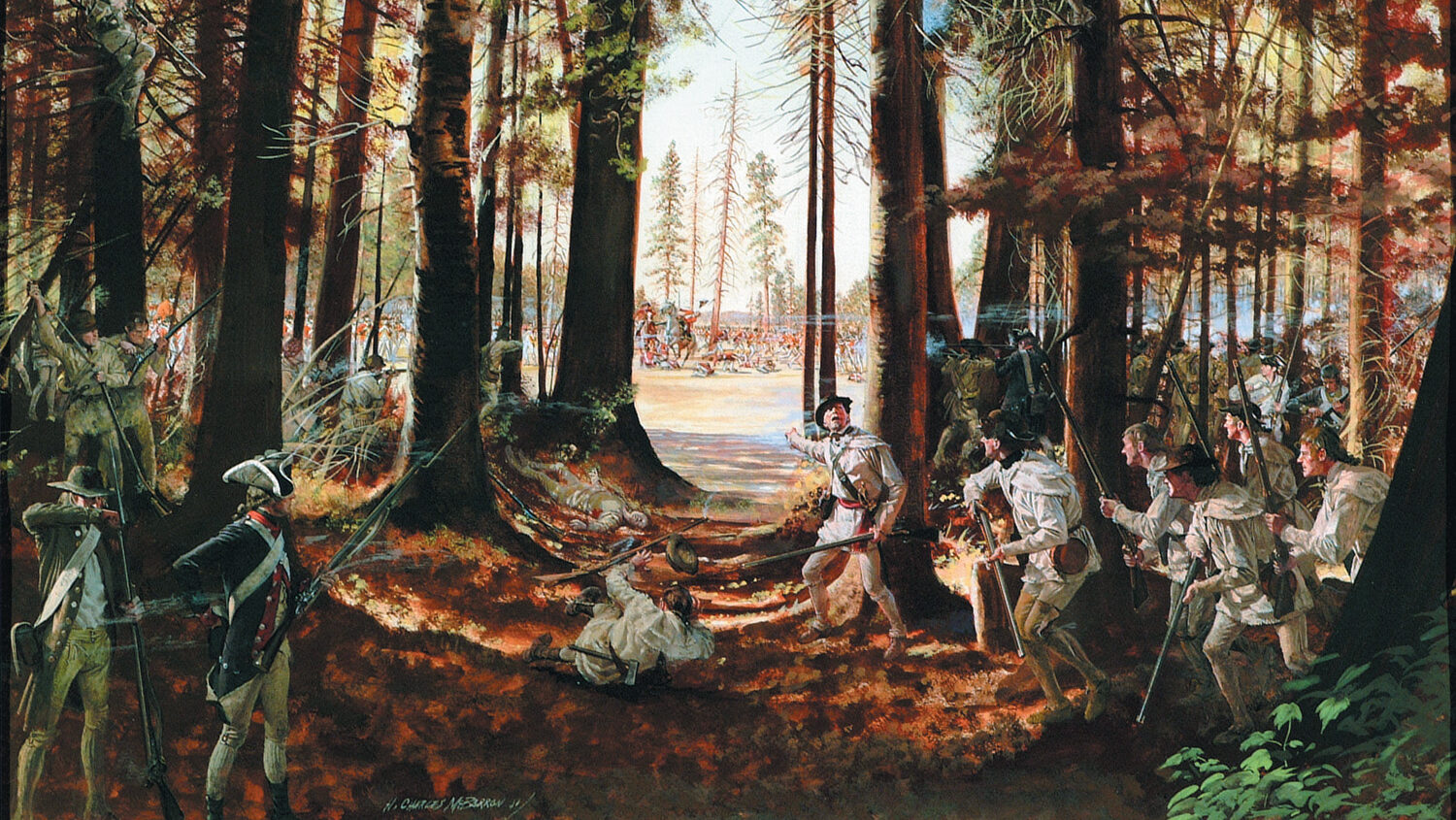
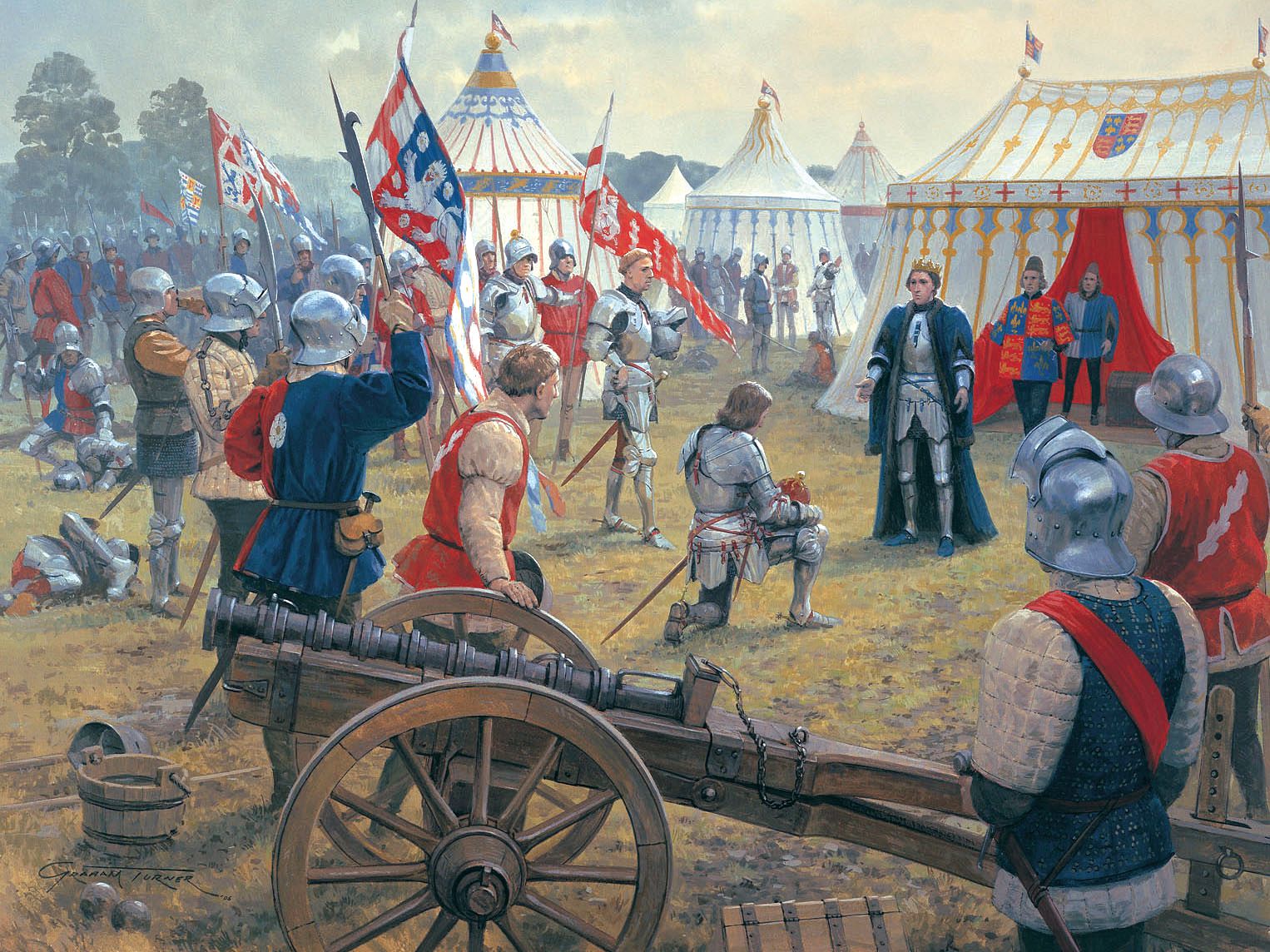
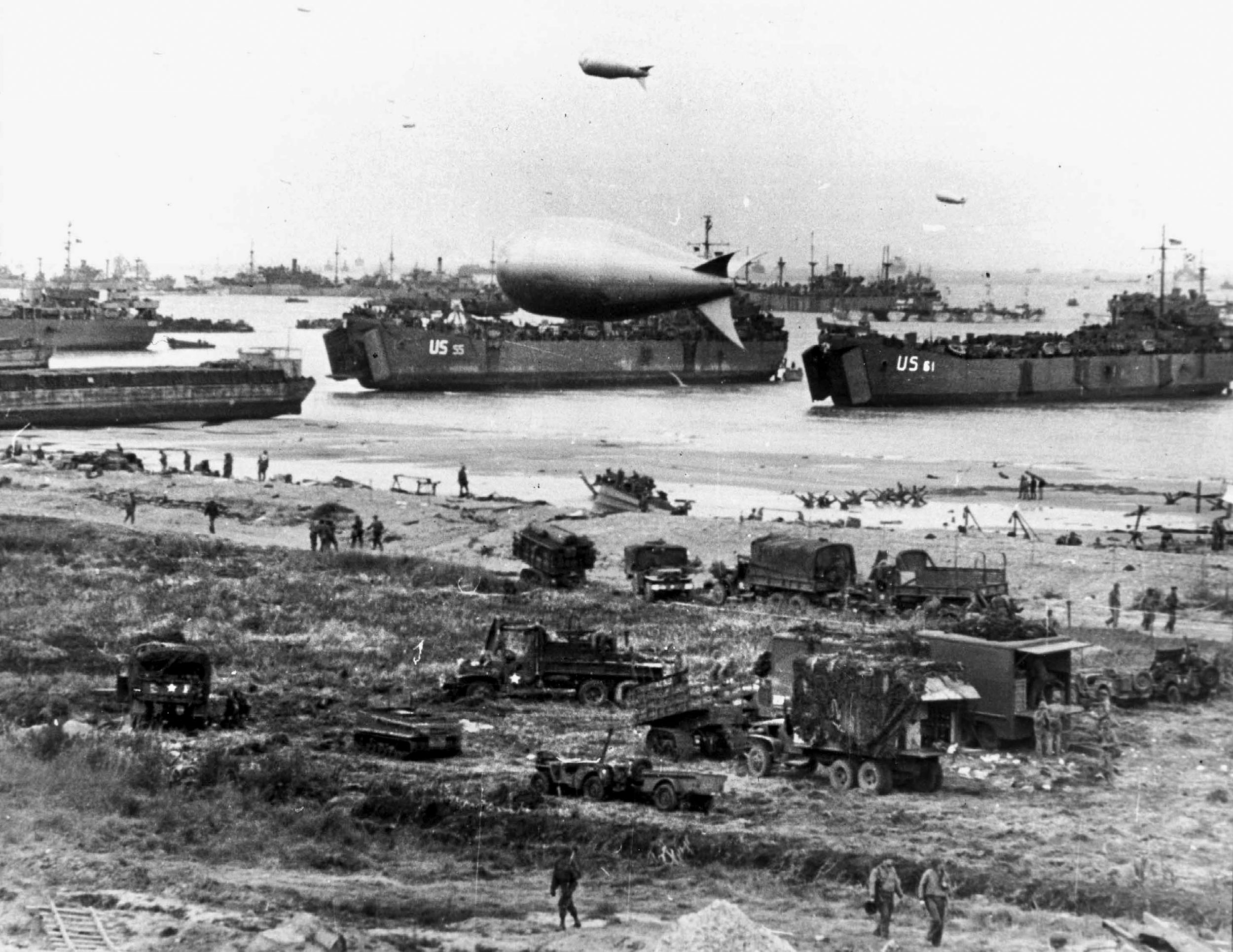
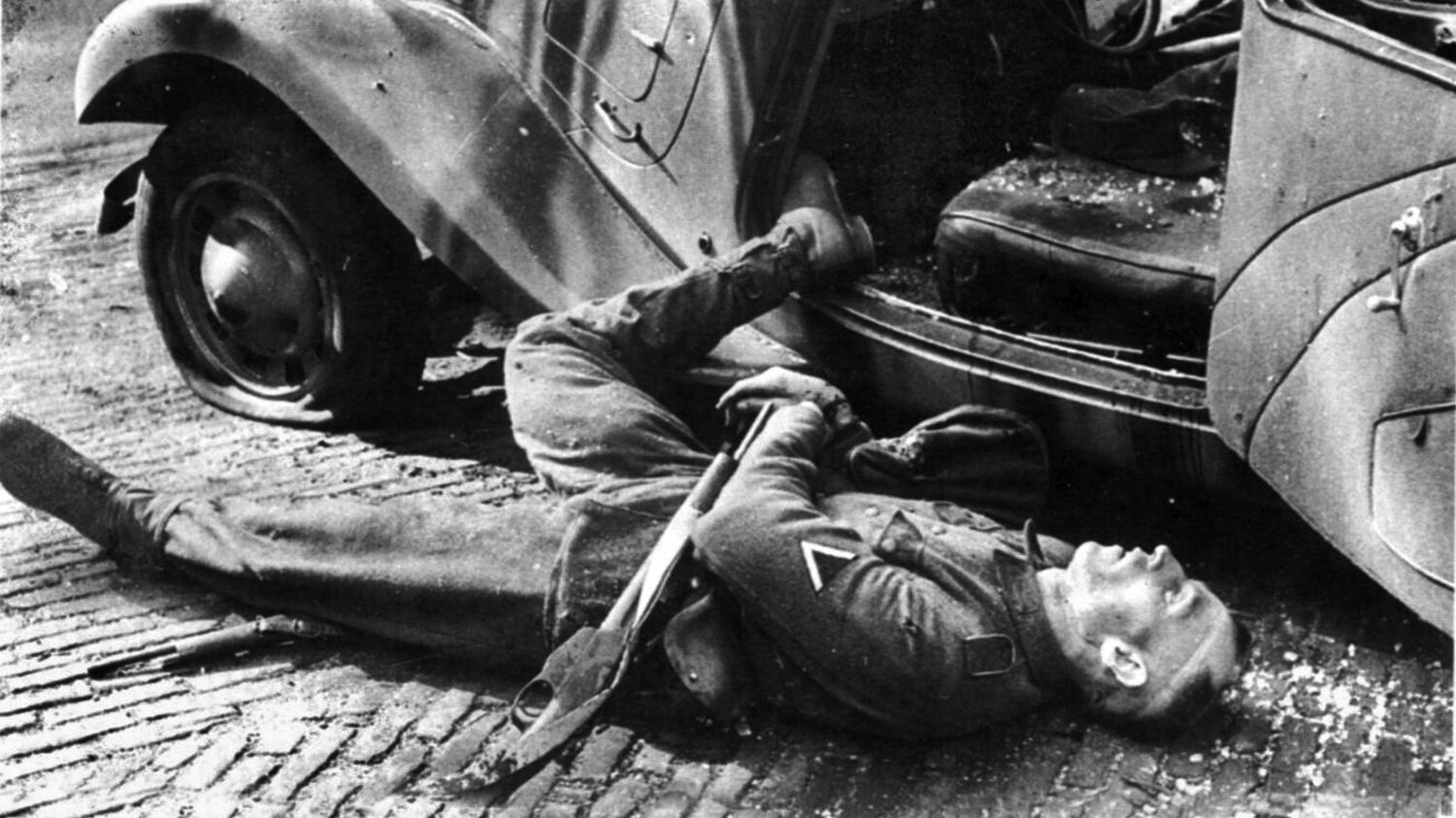
Join The Conversation
Comments
View All Comments